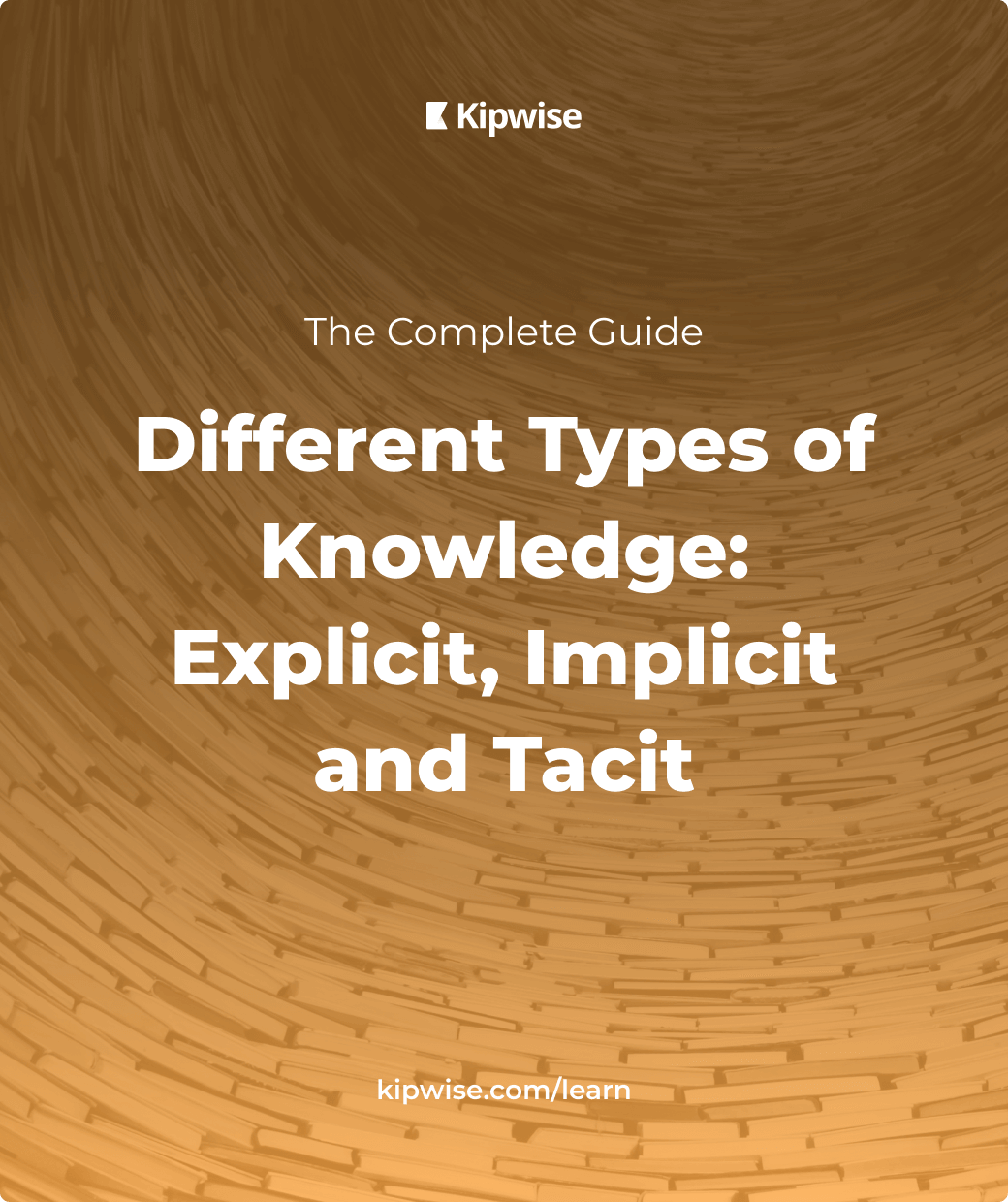In order for goal-driven organizations to comply with objectives and plan for any business strategy, the management division is a way to supervise and, essentially, manage employees. When organizations rely on a knowledge management strategy to boost efficiency, it is crucial to ensure that there is accountability across all relevant business units. A Knowledge Manager is a role assigned to a qualified employee to oversee and control all knowledge management aspects of a business. Depending on company context, there may or may not be an assigned knowledge manager. Alternatively, in some workplaces, the knowledge manager role is overseen by the managers of each department.
When building a knowledge-driven organization, it can be helpful to appoint a knowledge manager. This way, there is always someone who champions the use of knowledge effectively through governance, assurance and management.
The roles and responsibilities of a knowledge manager
Knowledge managers can be in charge of a plethora of activities. The size of the organization, type of knowledge base, company culture and knowledge management strategy, are all factors that determine what the knowledge manager has to do in the short-term and long-term. Ideally, the knowledge manager needs to have a good rapport with the teams and departments they manage in order to foster a collaborative environment.
Knowledge manager roles are crucial in information-heavy and data-driven departments, such as R&D, L&D, IT, Ops, Supply Chain and Customer Interactions. In other words, most, if not all, aspects of a business will benefit from some type of centralized knowledge database and information flow.
Depending on the needs of your organization, the roles and responsibilities of the knowledge manager are always shifting. Furthermore, macro-environmental factors, such as emerging market trends, will have an impact on the company’s knowledge management strategy.
Typically, a knowledge manager’s job scope and responsibilities will include:
- Encouraging a culture of knowledge-sharing and collaborative work flow among departments and project teams
- Ensuring that employees are sure of the knowledge management processes, including the purpose of doing so
- Making sure that the right knowledge goes to the right people, and that this information is promptly applied to business activities
- Helping capture new knowledge with the usage of a knowledge management system
- Monitor progress and learning processes by keeping track of engagement, project outcomes and other metrics
- Providing relevant coaching, training and support to champion a knowledge management culture
Why do companies need a knowledge manager role?
Right off the bat, it may seem as if a knowledge manager has a lot on their plate. However, much of the responsibilities described above serve an ultimate objective: to be accountable for all processes and knowledge management tools, and their alignment to organizational growth.
Besides an absence of a knowledge management strategy, one of the most common reasons for KM failure in organizations is a lack of leadership. When there is no one to lead or define the perimeters of knowledge management initiatives, employees tend to overlook them. Other reasons may include a lack of participation, failure to set objectives, lack of understanding of knowledge management, lack of metrics and monitoring to ensure that KM strategy is effective. All these reasons for failure mostly point to one thing: little to no management.
Having a knowledge manager role is important to knowledge-driven organizations for several reasons.
Creating a knowledge-sharing environment
When setting out on a new KM strategy, the transition may take some time as employees are not used to new tools or systems. A knowledge manager works as a catalyst to spur on a culture of knowledge sharing, such as reminding teams of the importance of promoting a healthy information flow. Furthermore, they can also start incentivizing knowledge sharing, such as by complimenting or rewarding individuals who contribute to the internal wiki each week.
Set realistic expectations and work towards it
The purpose of a knowledge management strategy is so that managers, C-level executives, employees and other stakeholders are always informed of their next step through a set of objectives. Ultimately, these objectives have to align with the company. A knowledge manager’s role here is to ensure that the KM strategy is always in the right direction.
Monitoring and measuring knowledge management activities
How can organizations be sure that their strategies are working? By keeping track of knowledge management metrics, knowledge managers will have a quantifiable way to justify new strategies, course-corrections, identify risks and areas for improvement. For instance, teams are seldom interacting with the knowledge base, it may serve as an indication that more needs to be done to improve participation. Or if certain types of files are not being accessed as much, it can be worth looking into them to see if the content is usable.
Control the flow of information and accessibility
It can be difficult to onboard an entire organization right away. A knowledge manager’s role is to be familiar with the infrastructure of knowledge management tools, such as a knowledge base. Some features, such as file accessibility, are to be controlled by one person.
Providing support
A qualified knowledge manager possesses the skills that help foster a learning and collaborative environment, as well as capturing new knowledge in the most effective way. A knowledge manager is a dedicated role that provides training and coaching in regards to all KM matters. This way, there will always be adequate support to existing employees as well as in onboarding new teams.
Capturing new knowledge effectively
Having a knowledge manager can help organizations streamline processes such as capturing new knowledge. Often, the collective “know-hows” of a workplace is hidden in its employee’s tacit knowledge. For higher-level executives, there is no way of telling what intangible skills each individual employee has. Thus, it is crucial to have the expert guidance to maximize knowledge capturing through the conversion of tacit knowledge to explicit knowledge. Additionally knowledge managers ensure oversight of accurate documentation of new knowledge.
What makes a good knowledge manager?
The essential skills and characteristics for a knowledge manager is largely similar to that of other managerial roles in a business. Managers are often required to be people-oriented, while also being able to see big picture objectives for the business. Diving more specifically into knowledge management, managers ought to possess leadership qualities in order to effectively convey their visions and motivate teams.
Knowledge managers should also have a strategic mindset, creating initiatives that support the overall direction of the business. They have to be observant and mindful of their team's actions, taking note of slow adopters or employees that are struggling with change. Communication has and always will be a critical skill for managers, since they are essentially dealing with multiple employees. It is important for knowledge managers to leverage communication skills to create synergy and promote collaboration between teams.
Sample knowledge manager job description
If you are looking to appoint a knowledge manager role at your organization, our Sample Knowledge Manager Job Description encapsulates all the responsibilities of the role above. Whether you are looking to hire internally or externally, this sample will help you define the role and secure qualified candidates to drive your KM strategy.
Knowledge Manager Role
Job description:
The knowledge manager is responsible for overseeing all knowledge-related activities, including the management, capturing, sharing and accessibility of knowledge assets. They are required to work alongside stakeholders, internal and external, to promote and optimize the usage of the organization’s knowledge assets. Knowledge managers are expected to keep themselves and their appointed teams accountable for compliance to the company’s expectations and strategy. They are also responsible for communication, promoting collaboration and workplace harmony.
Ideal candidates possess soft skills such as great leadership, effective communication, problem-solving, coaching and teamwork skills. These skills will aid in promoting a culture of knowledge-sharing that is enabled through guidance and learning. As a knowledge manager, you will be well-equipped with the knowledge base features, functionality and be able to communicate this to teams effectively. As managers in a fast-paced and knowledge-driven environment, you will have to be able to identify concepts and ideas and come up with solutions quickly.
Job scope:
- Promoting collaboration and knowledge sharing through defining, supporting and encouraging the use of knowledge to employees of all skill levels and roles
- Ensuring that knowledge technologies are up-to-date and working according to function, as well as ensuring that employees are not misusing company tech infrastructure
- Controlling the accessibility and flow of knowledge within the organization and to external parties
- Helping capture new knowledge with the usage of a knowledge base
- Monitor progress by leveraging analytics to assess the impact, engagement, functionality and effectiveness of knowledge management strategy
- Providing relevant coaching, training and support to champion a knowledge management culture






